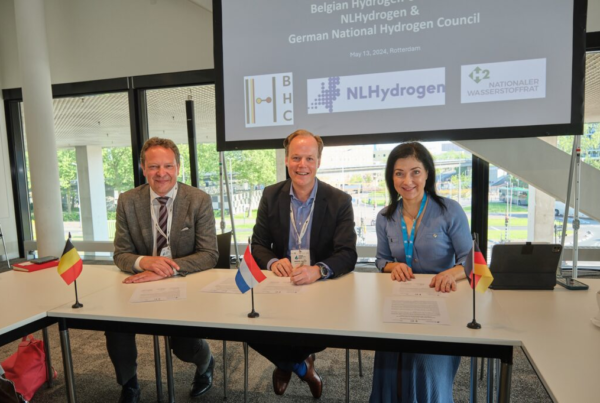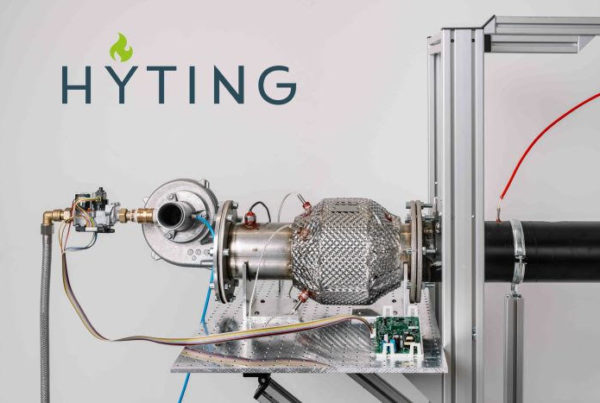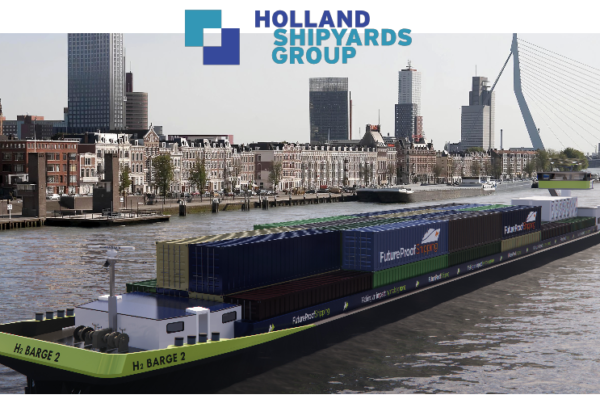
On 09.01 Fuel Cells Works sat down with Hyzon’s CEO Craig Knight to do a Q&A in order to see what it has been up to, since in the commercial market segment Hyzon is the leader in developing fuel cell stacks and integrating them into commercial vehicles.

FCW. What is the relationship between Horizon Fuel Cell Technologies and Hyzon going to look like as we move into the future? Is it going to be like Alphabet and Waymo?
The Horizon shareholders continue to hold more than 50% of the equity in Hyzon. As much as the two parties can exploit fuel cell technology [together they will]. In the future, Hyzon is expecting technical collaboration since there is a lot of value from close collaboration. There is no actual control in anyway of Hyzon by Horizon since Horizon only has the equity stake.
FCW. When do you think we will see a coast-to-coast network of hydrogen fueling stations in Canada and the U.S. because of Hyzon’s partnership with a company like Raven SR?
Hyzon is focused on back to base hub in the near term however Hyzon sees great potential in those hubs eventually filling in gaps. For long-haul scenarios liquid hydrogen is attractive for FCEVs and that reflects on Hyzon’s collaboration with Chart industries. Liquid hydrogen will allow going much longer distances. For local application 350 gaseous hydrogen is currently used by Hyzon trucks.
FCW. When do you think we will see hydrogen fuel cell class-8 trucks get to a point where a majority of them typically go 700 miles between fill-ups?
For 700 miles liquid hydrogen is needed and by the end of 2023 Hyzon will offer the option of liquid storage tanks.
FCW. What markets does Hyzon feel are the furthest along towards maturity globally where hydrogen is concerned?
Geographically Hyzon saw its first wave of interest in Japan, Korea, and China. That gave Horizon experience with FCEV in China. Heavy duty prime movers in ports and places like that gave Hyzon the energy to pursue hydrogen in Europe. In Europe Hyzon is seeing quite a bit of availability of commercial hydrogen fuel. Municipalities are expressing interest in hydrogen and in the last six months the private sector is pursuing general prime mover type applications like refuse trucks and also heavy-duty concrete trucks, ambulances. A third wave is North America on commercial FCEVs, but because of a company like Hyzon the North American market will benefit a lot from that expertise.
FCW. What areas does Hyzon feel have the most room for improvement where hydrogen is concerned?
Clearly hydrogen availability is one area that needs improvement. On that front Hyzon is early on the journey to pursue partnerships with fleet operators. It is working hard with technology and project developers to assemble hydrogen demand. A lot of hydrogen demand in one location is what Hyzon is really interested because of the compelling use case.
FCW. What is the expected maintenance cost of Hyon’s class-8 trucks supposed to be over 10 years?
The maintenance for a FCEV is typically less than a diesel vehicle, and Hyzon is expecting a savings of 20-30%. Residual value of a FCEV is likely to be a lot higher than a BEV since fuel cells are a cradle-to-cradle technology.
FCW. What advantages does Hyzon feel it has over other competitors like Hyundai and Toyota where class-8 trucks are concerned?
Firstly, the more companies that get into heavy-duty trucking the better Hyzon feels because it is a strong argument for the value proposition. It is Hyzon’s view that when others get serious about FCEVs it creates a sign that Hyzon is on the right track. The power, operating, and durability of heavy-duty fuel cells [the type Hyzon builds] is higher than it is for light duty vehicles.
FCW. Does Hyzon have any plans right now to enter the agriculture sector to produce farm tractors and the like?
The incumbent OEMs are showing an interest in FCEVs and because of that Hyzon is not focusing on it right now, but Hyzon does see the possibility of selling powertrain fuel cells to others. The supply and infrastructure of hydrogen can be difficult when it comes to agriculture right now.
FCW. Was all of Hyzon’s fuel cell stack developed in-house or is it collaborating with a company like Ballard right now?
Hyzon developed all of the background technology with Horizon. Because Hyzon has built all of its technology internally it was able to more easily upgrade products and fix any issues.
During the interview Craig mentioned that Hyzon has been focused on the highest value proposition for hydrogen such as segments like city buses or refuse trucks. Vehicles that make frequent stops and that have additional electricity requirements beyond simply being propelled forward are able to take advantage of hydrogen’s superior performance when compared to that of BEVs or diesel vehicles.
After riding in one of Hyzon’s FCEV heavy-duty trucks that was in attendance at the expo, Fuel Cells Works can confirm that Hyzon is definitely helping to bring this world out of the dark ages of internal combustion and into the renaissance of the Hydrogen Era. Peacocks need not apply.
Read the most up to date Fuel Cell and Hydrogen Industry news at FuelCellsWorks




